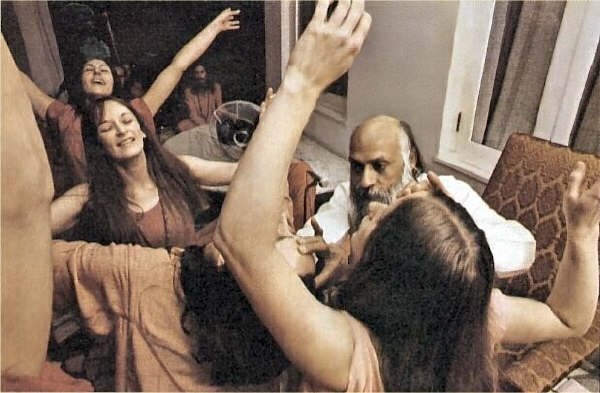The word "enlightenment" is beautiful. We come from the source, the ultimate source of light. We are small rays of that sun, and howsoever far away we may have gone, our nature remains the same.
Nobody can go against his real nature: you can forget about it, but you cannot lose it. Hence attaining it is not the right expression; it is not attained, it is only remembered. That's why Buddha called his method SAMMASATI.
Sammasati means right remembrance of that which is already there. Nanak, Kabir, Raidas, they have all called it SURATI. Surati means remembering the forgotten, but not the lost. Whether you remember or not, it is there — it is there exactly the same.
You can keep your eyes closed to it — it is there. You can open your eyes — it is there. You can keep it behind your back — it is there. You can take a one-hundred-and-eighty-degree turn and see it — it is there. It is the same.
George Gurdjieff used to call his method self-remembering. Nothing has to be achieved, nothing at all, but only to be discovered. And the discovery is needed because we go on gathering dust on our mirrors. The mirror is there covered by the dust.
Remove the dust, and the mirror starts reflecting the stars, the beyond. Krishnamurti calls it awareness, alertness, attentiveness. These are different expressions for the same phenomenon. They are to remind you that you are not to go anywhere, not to be somebody else.
You just have to find out who you are, and the finding is not difficult because it is your nature — just a little reshuffling inside, a little cleaning.
It is said that when Bodhidharma attained enlightenment, he laughed for seven days continuously. His friends, his disciples, thought he had gone mad. They asked him, "Have you gone mad?"
He said, "I WAS mad, now I have become sane. I have gone sane!"
"Then why are you laughing?" they asked.
He said, "I am laughing because I have been searching for thousands of lives for something which was already within me! The seeker was the sought, and I was looking everywhere else — I was looking everywhere except inside."
The famous Sufi woman, Rabiya al-Adabiya, one evening when the sun was setting, was found searching for something just in front of her door on the road. A few people gathered and they said, "Rabiya, what have you lost? We can help you."
She was an old woman and loved by the people, loved because she was beautifully crazy. Rabiya said, "I have lost my needle. I was sewing and I lost my needle. I am searching for it, and there is not much time because the sun is setting. If you want to help me, help quickly, because once the sun has set and darkness has descended, it will be impossible to find the needle."
So they all started a hectic search for the needle. One of them suddenly thought, "The needle is such a small thing and the road is so big, and the sun is going down every moment, the light is disappearing — unless we know the exact spot where it has fallen it will be impossible to find it." So he asked Rabiya, "Will you please tell us where the needle has fallen exactly? Then it will be possible to find it. Otherwise soon there will be darkness, and the road is very big and the needle is very small."
Rabiya started laughing. She said, "Please don't ask that, because I feel embarrassed by the question!"
They all stopped searching. They said, "What is the matter? Why should you feel embarrassed?"
She said, "I feel embarrassed because I lost the needle INSIDE the house, but because there is no light there, how can I find it? Outside on the road there is just a little light from the setting sun."
They all said, "Now you have gone completely crazy! We had always suspected that you were not sane, but this is an absolute proof!"
Rabiya said, "You think me insane, yet you have been doing the same for lives together — and YOU are sane? Where have you lost yourself, and where are you trying to find it? Where have you lost your bliss, and where are you trying to find it? It is lost in your inner world, and you are searching on the outside!"
OSHO MEDITATION ….
THE MIRROR IS CLEAR..the dust has not been gathered and everyday a continuous cleaning goes on, thats's what i call Meditation……………



